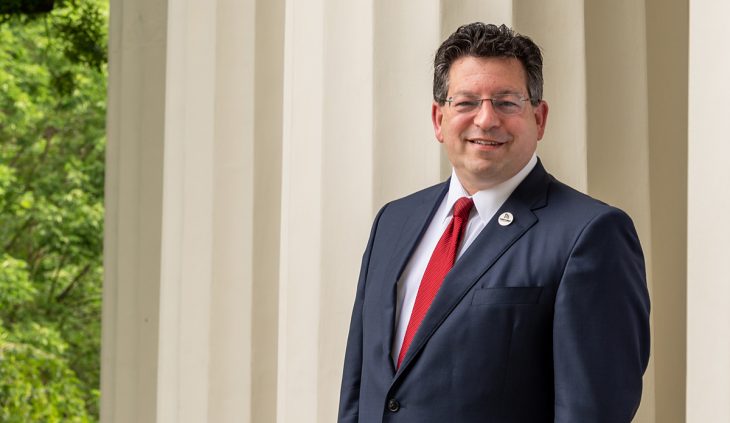
In an interview with The Plexuss Presidential Podcast Series, Brien Lewis discusses a variety of topics — from what led him to become president of Transylvania University to what employers are looking for in its graduates.
Lewis’ path to a college presidency was inspired by Paul Hardin, a lawyer and law school professor who became chancellor of University of North Carolina at Chapel Hill. While Lewis was an undergrad at UNC, where he served as student body president, he came up with a 20-year plan (which actually took 22 years): Graduate from law school, get professional experience, find an appropriate entree into higher education and work up to a presidency. (He first assumed that role at Catawba College.)
“It was certainly helpful to have that long-term goal in mind,” Lewis said.
As a college president, he’s especially focused on enrollment growth and donor support. “If you have those things working well, then you can continue to develop and sustain an intuition,” he said.
Lewis appreciates the close-knit feel of a college the size of Transylvania, where he knows many faculty and staff by name, and, when students walk across the commencement stage each May, he often knows something about the journey that led them there and where they’re headed next.
When Lewis looks to the lives of Pioneers after graduation, he feels confident about their prospects. He often hears from employers that the “Transylvanias of the world” are preparing students for exactly what they need in their employees. “They are looking for young people with strong critical thinking skills, strong communication skills, the ability to synthesize information from a lot of different sources and disciplines and work collaboratively to find solutions,” he said.
As for the school’s future, Lewis sees working on Transylvania’s existing strengths, like getting students ready for professional schools. The university already has a 90% acceptance of its graduates who apply to medical schools and a 100% rate to law schools. He also hinted at possible programs in the works, such as nontraditional educational opportunities.

